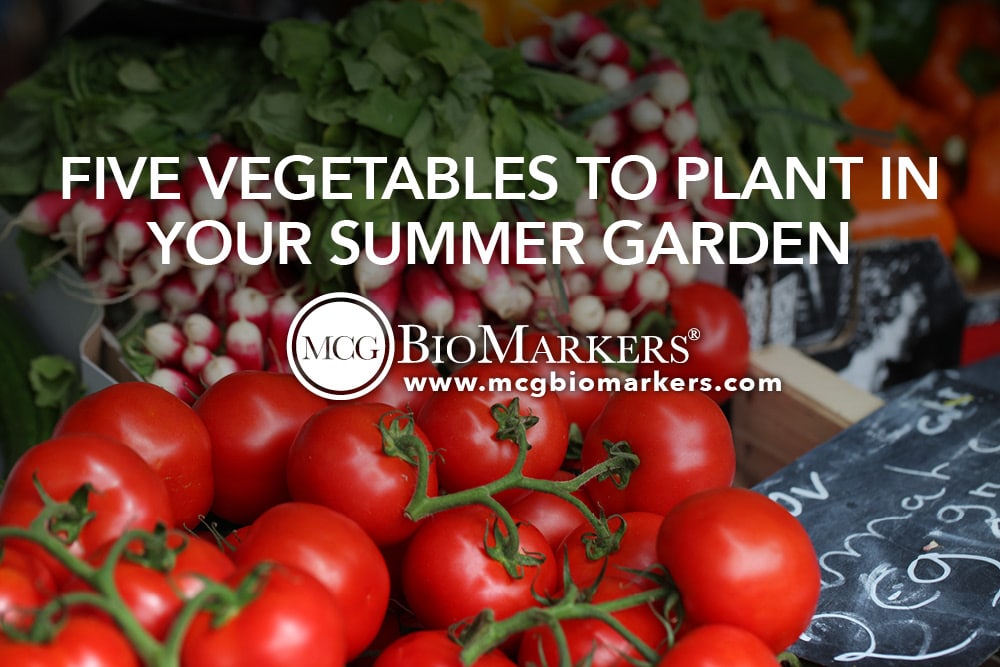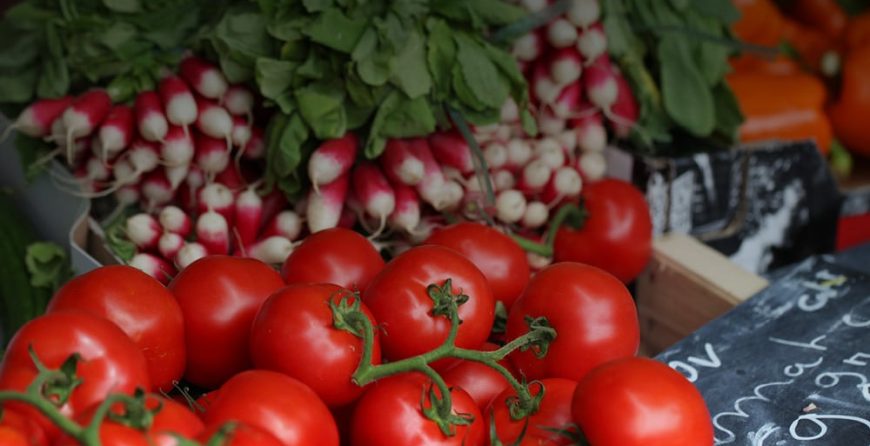 It’s mid-May, which means it’s high time to be thinking about the vegetables you want to grow in your organic summer garden.
It’s mid-May, which means it’s high time to be thinking about the vegetables you want to grow in your organic summer garden.
Warm season vegetables need long days and warm temperatures to thrive, unlike spring veggies that are happy hanging out in cold soil.
The organic vegetables that need longer periods of sunlight should be planted after the last frost date. Iowa covers gardening zones 4 through 7. To help you stay organized, we’ve listed the average last frost date for each zone.
- Zone 4 – May 1 – 30
- Zone 5 – March 30 – April 30
- Zone 6 – March 30 – April 30
- Zone 7 – March 30 – April 30
To enjoy delicious fruits of your hard summer labor, we suggest growing the following veggies in your organic summer garden:
Summer squash and zucchini – Squash is one of those vegetables that doesn’t transfer well, so try to sow it directly into the garden after the last frost date. Summer squash loves to be in nutrient-rich soil that’s well-drained. Make sure to place a generous amount of compost or well-rotted manure in your garden before sowing summer squash. Gather them when they are young and tender.
Beans – These guys are easy to grow from seed, so you can sow them directly into the garden once the temperatures have been above 60 degrees for a while. Sow the seeds every three weeks to enjoy a continuous harvest. Stop sowing when it’s 8 weeks from the first fall frost date. Don’t worry about staking bush beans since they do not need it. They have shallow roots, so use caution when working the soil around them.
Sweet Corn – Our yellow-eared friend requires a lot of space to grow and we Iowans know that the pollination has to be just right. But there’s nothing quite like a juicy, fresh ear of Iowa sweet corn that was boiled and prepared fresh from the garden. Corn needs the wind to carry the pollen from the tassels to the silks, so your job is to increase the pollination as much as you can. To do this, plant your corn in a square of short rows and space them about a foot apart. During planting time, feed corn with organic fertilizer or worm castings and do this again when the tassels begin to form. Water it consistently and regularly, especially on dry days.
Autumn and winter squash – As the thick-skinned cousin of summer squash, the acorn, butternut, and delicata varieties are ideal for summer planting and autumn/winter harvesting. Many vining varieties need a good amount of space, so place them at least 5 to 10 square feet away from each other. If you’ve chosen bush varieties, then you can plant them 3 to 5 feet apart. Make sure you give them the chance to ripen on the vine before harvesting them at the end of the growing season.
Cucumbers – Scrumptious cucumbers need days of full sun, a minimum of one inch of water per week, rich soil, and pollinating insects to thrive. Pick your cucumber fruits regularly so they continue to produce. If you want to plant bush varieties, you can place them in containers, but we suggest working with vining types if you have the space since they will produce more fruit.


